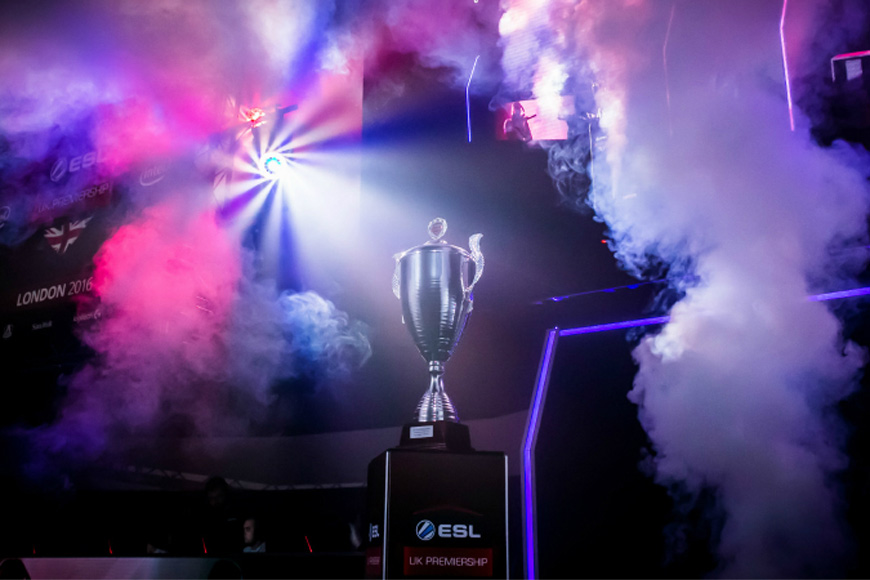Guest post
In the never-ending debate about the impact technology will have on the sports-betting industry, both esports and fantasy sports have been given a higher profile.
Here, we take a moment to run through the things you need to know about this vibrant scene, and speak with Nathan Hunt, a renowned serial entrepreneur and now CEO of Bettium, an AI-powered sports-betting company.
Enhanced regulation
In most countries, sports-betting tournaments have been subject to extensive regulation and stringent control. In the US in particular, the Professional and Amateur Sports Protection Act (PASPA)—passed by Congress back in 1992—prevented all but a few states from regulating and promoting sports gambling, which essentially had been prohibited nationwide by that time.
Now, in a 6–3 decision, the U.S. Supreme Court judges have ruled that PASPA was unconstitutional. They have, in fact, cleared the way for states to legalize sports betting—and hence sports-betting tournaments—by providing their regulatory sandboxes. This move means a windfall for online betting startups that have already made their presence felt in the space but—until now—have been subject to the same vague legal loopholes as traditional sports-betting companies.
“Indeed, this is an important milestone and exciting time for the industry. With most states leaning toward a favorable decision, there is tremendous potential for us as a company, and we have a positive outlook on the future of our sports-betting platform in the US market,” commented Nathan Hunt, CEO of Bettium.
What is interesting is that—despite opposing significant reforms—a number of major sports leagues and associations (such as NBA, MLB, and NFL) have officially changed their tune and recognized the untapped potential to increase engagement for their sports by legalizing sports betting.
However, most leagues have asked for the ability to monetize their IP and data streams as related to wagering. And, even after losing their fantasy sports cases in court not so long ago, they now want to govern the process and restrict betting at their discretion.
This negotiation, as well as the ongoing debate among policymakers and within states, will definitely have an impact on both the sports-betting market in general and sports-betting tournaments in particular. As ever, though, the question is how—not when—regulatory changes will come to the new, rapidly growing sector, with the worldwide viewing audience larger than for any other traditional sport.
Appearance of AI
As states and leagues are busy devising the regulation, sports-betting companies are rapidly adopting the latest tech to stay ahead of the curve. In fact, in the sports-betting industry here, technology is now being integrated at an unseen rate. Today, the task of organizing a sports-betting tournament ultimately cascades down to tech companies that provide the infrastructure, smart technology, and software platforms to handle a myriad of day-to-day operations, to prevent fraud, and to stay compliant with the legislation.
This sounds boring, but there is a plethora of tech-driven startups that aim to streamline routine work, such as Know Your Customer and anti-laundering checks, transactions and more.
As a matter of fact, there are even startups working to rethink the online betting experience offered by traditional betting sites, and to deploy the next generation of cloud platforms for both organisers and a general audience of ordinary bettors.
“While amateur bettors seem to win from time to time when betting on old-line sites, they in fact lose money over the long haul, lacking professional tools as well as information to assess a given sporting event and size their bets properly,” said Hunt.
“Pro bettors, in turn, utilize machine learning and predictive analytics based on relevant data scraped from multiple sources. These (usually not easily accessible) tools allow them to win more, and sell their one-off forecasts for a profit.”
To cater to masses, and open the sports-betting market for new advertisers and investors, sports-betting start-ups—such as Unikrn and Bettium—have built full-fledged wagering platforms that track stats and help people make educated betting decisions. Moreover, Unikrn has already raised a whopping $41.4 million to improve its services and promote the platform on a global scale. Bettium is running through a private round, and will deploy its platform this fall.
“We at Bettium aim to level the field between amateur bettors and pros. In order to do that, we have created a massive databank, and built an AI-powered platform—open to all types of bettors—to make their betting experience more efficient and allow even less-experienced bettors to participate in sports-betting tournaments with more chances to win based on real data,” concluded Hunt.
Article contains affiliate links


